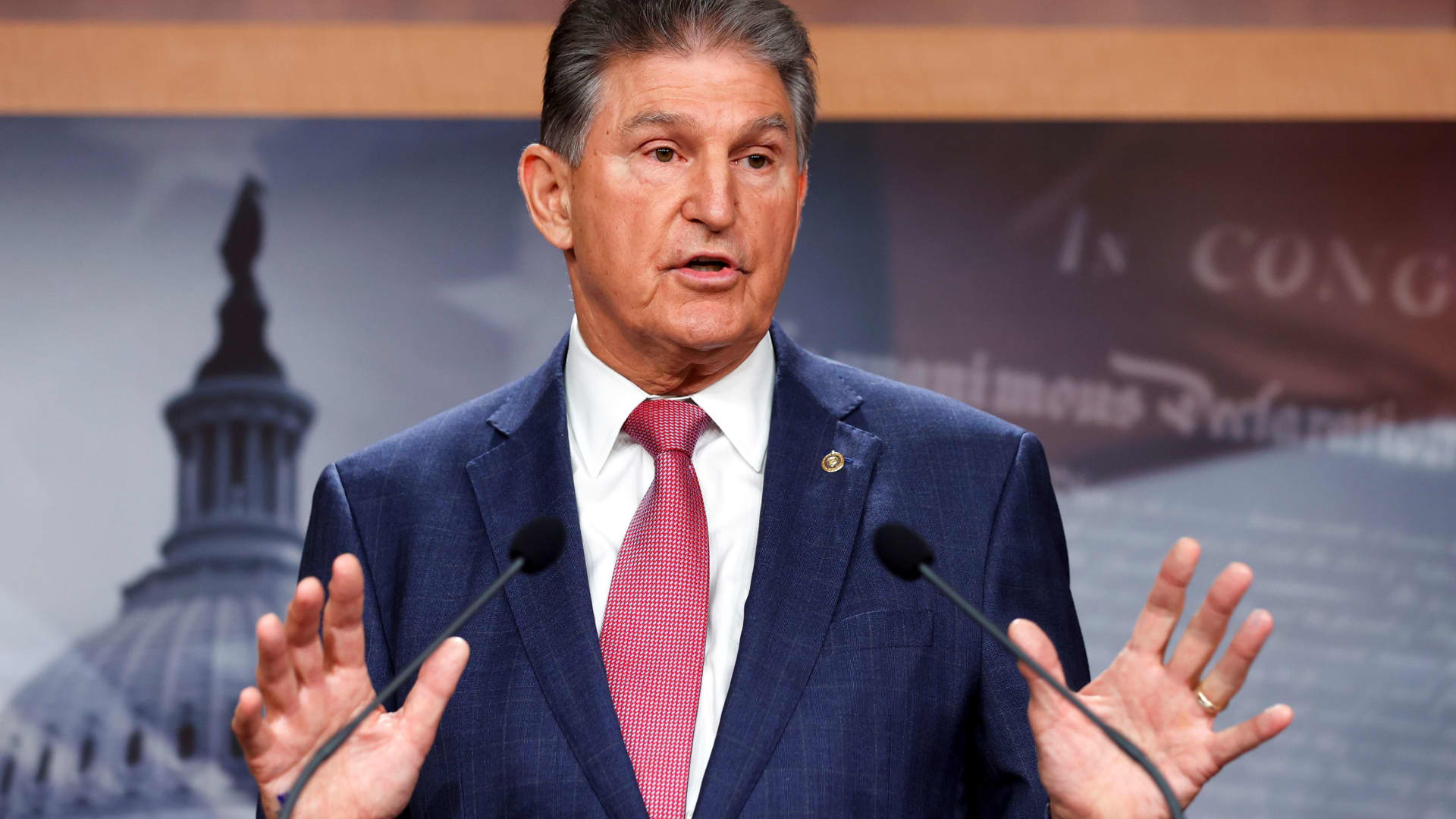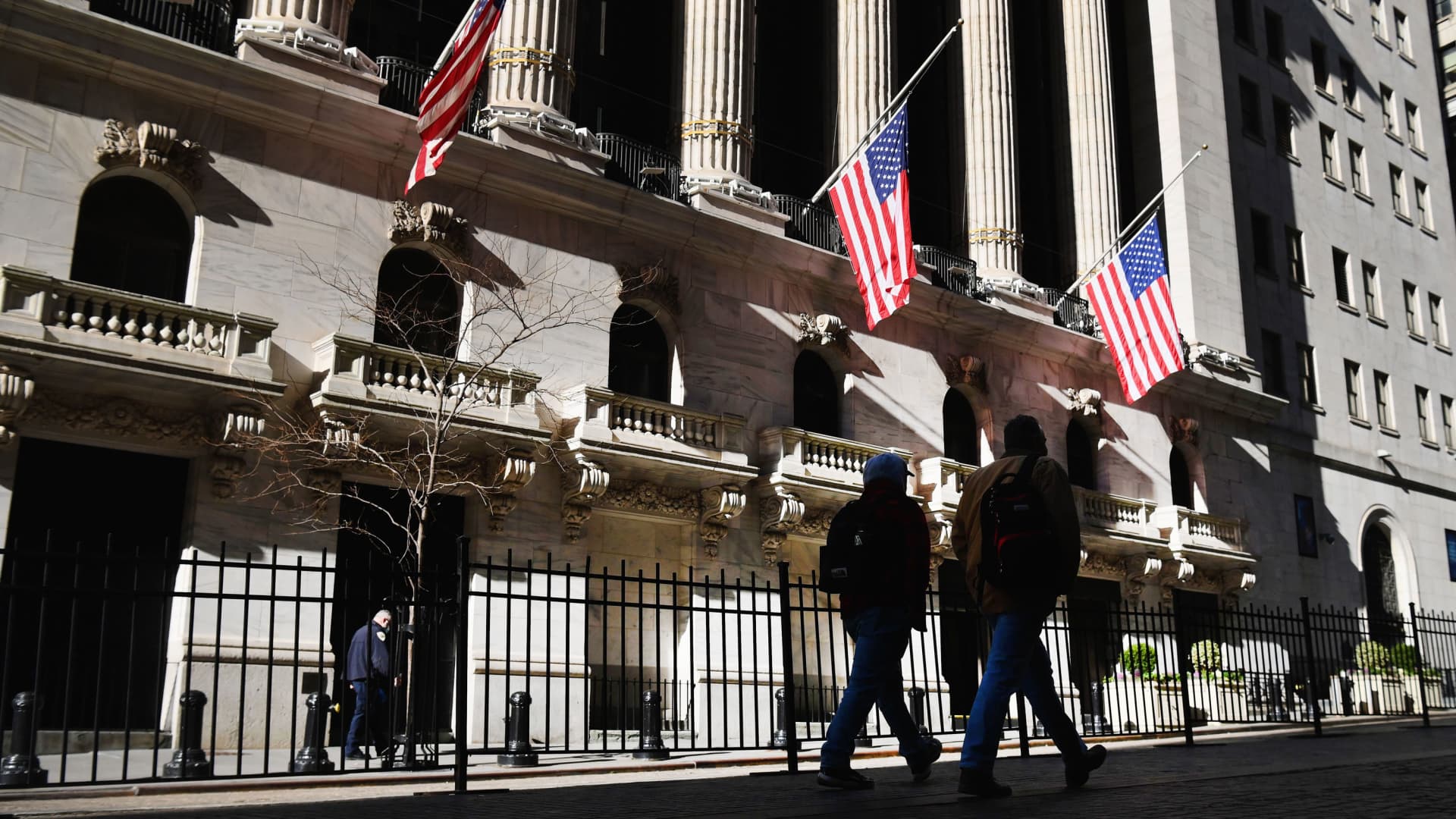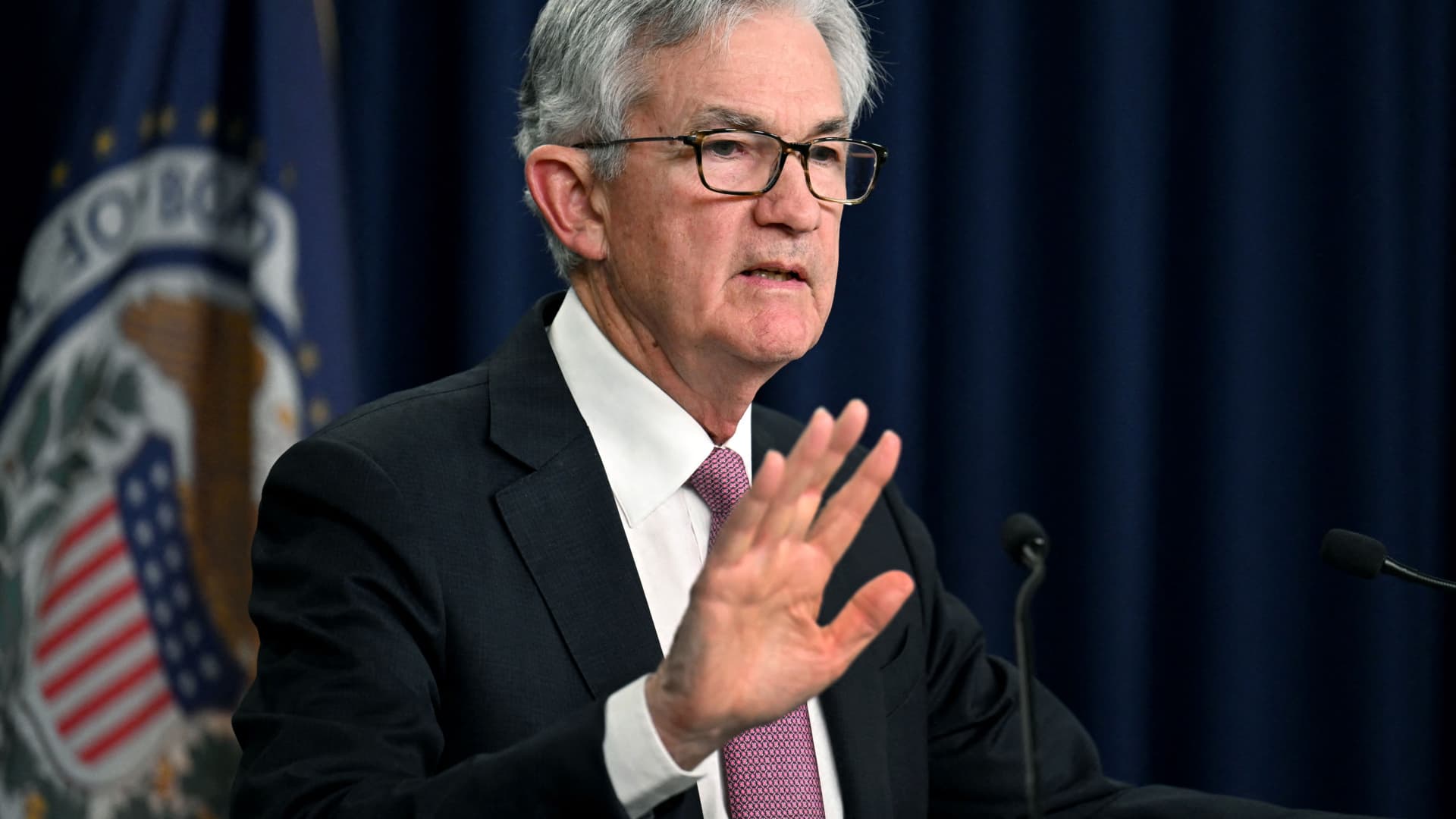US Markets
Friday, July 15th, 2022 5:34 pm EDT

President Joe Biden on Friday said he will move forward with his own efforts to combat climate change and curb greenhouse gas emissions, a day after Sen. Joe Manchin, D-W.Va., told Democratic leadership that he won’t support the climate provisions in the reconciliation bill.
The comments by Manchin, a key centrist who holds the swing vote in the 50-50 Senate, could potentially sink months of negotiations in Washington over the sweeping policy package and end hopes of Congress passing any major climate change legislation this summer.
“If the Senate will not move to tackle the climate crisis and strengthen our domestic clean energy industry, I will take strong executive action to meet this moment,” Biden said in a statement.
The president did not mention specific climate and clean energy policies but said his actions will create jobs, improve energy security, bolster domestic manufacturing and supply chains and protect the economy from future oil and gas price hikes.
“I will not back down: The opportunity to create jobs and build a clean energy future is too important to relent,” the president said. Biden also urged lawmakers to act quickly to pass other portions of the package that the senator does support.
Manchin, who comes from the coal-rich state of West Virginia, has previously opposed some efforts by Democrats to address climate change and curb emissions. Because of the 50-50 vote split in the Senate, Democrats would not be able to move the legislation forward without Manchin’s support for the domestic policy bill, which would allocate billions of dollars in incentives to slash emissions.
During a West Virginia radio station interview, Manchin said that he was still open to negotiations and that he would only support swift action on the drug-pricing portion of the plan while holding off on other parts. He said he would not support any climate provisions until he had a better understanding of the inflation figures for July.
“I want climate. I want an energy policy,” Manchin said. “I would not put my staff through this — I would not put myself through this — if I wasn’t sincere about trying to find a pathway forward to do something that’s good for our country.”
Biden must now depend on imposing executive actions to address climate change, which can be overturned by future administrations. Potential executive actions include curbing oil and gas drilling on federal lands and imposing new Environmental Protection Agency regulations on power plant emissions.
Sen. Sheldon Whitehouse, D-R.I., argued that the administration could impose a carbon border tariff on imports from countries with relatively worse greenhouse emissions, as well as require carbon capture from all major emitters and create stronger emissions controls on cars, lightweight trucks and heavy-duty vehicles.
“There is opportunity in this moment. The Biden administration has a wide lane to step up and start taking vigorous action to fight the climate crisis,” Whitehouse wrote in a tweet on Friday.
“With reconciliation foreclosed as a path for ambitious climate action, Congress must pivot to potentially bipartisan climate solutions such as a border carbon adjustment,” Whitehouse wrote in a second tweet. “Meanwhile, the executive branch has lots of tools at its disposal.”
Some environmental groups called on the president to declare a national climate emergency under the National Emergencies Act, a move that would unlock authorities like reinstating a ban on crude oil exports.
Climate groups also urged Biden to direct the EPA to establish national limits for greenhouse gases and require the Interior Department to end new oil and gas leases and phase out the production of oil and gas on public lands and waters.
“This is the time for fast and furious executive action on climate,” said Brett Hartl, government affairs director at the Center for Biological Diversity, in a statement. “Again and again, we’ve seen Manchin’s bluff and bluster come to nothing.”
Ashley Thomson, senior climate campaigner at Greenpeace USA, said the president “has no more excuses” after Manchin’s opposition to the climate legislation, and must use executive powers to prevent the worst consequences of climate change.
“President Biden can end public land lease sales to fossil fuel companies, start regulating [greenhouse gases] through his existing powers with the EPA, and declare a climate emergency,” Thomson said. “We cannot continue to wait around for a bunch of corporate shills in Congress to do nothing while people are dying.”
Biden has pledged to reduce U.S. greenhouse gas emissions by 50% to 52% from 2005 levels by 2030 and reach net-zero emissions by mid-century. However, without a reconciliation bill that includes climate provisions, the country is on track to miss the president’s goal, according to a recent analysis by the independent research firm Rhodium Group.
This post has been syndicated from a third-party source. View the original article here.




